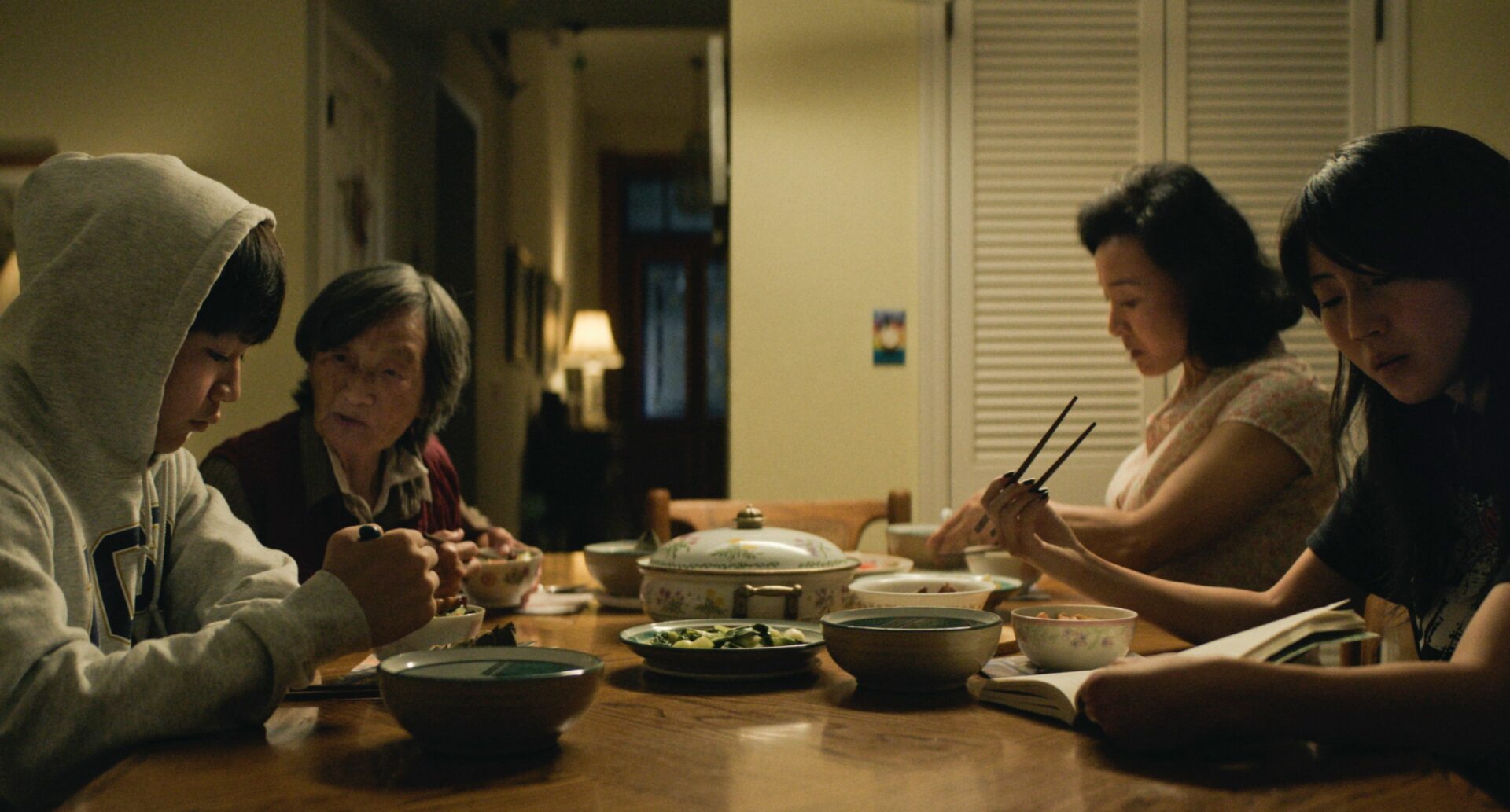
Dìdi, directed by Sean Wang and starring Izaac Wang, Joan Chen, and Shirley Chen, is a tender and introspective coming-of-age film that stands out as a refreshing addition to the genre. As Sean Wang’s directorial debut, the movie resonates with a raw authenticity that is both touching and thought-provoking. At its core, Dìdi is a semi-autobiographical narrative that delves into the complexities of teenage angst, cultural identity, and familial relationships, all while maintaining a gentle, self-critical tone that sets it apart from other films in the genre.
Table of Contents
Synopsis: The Story of Dìdi
The film follows the life of Chris (Izaac Wang), a Taiwanese-American teenager navigating the tumultuous waters of adolescence in a small suburban town. Chris is caught between the expectations of his traditional Taiwanese family and the desire to fit in with his American peers. His life is a delicate balancing act, where he must constantly juggle the cultural pressures from home and the social demands of his school life.
Character Dynamics: Family, Identity, and Understanding
Chris’ relationship with his mother, portrayed by Joan Chen, is central to the film. She is a first-generation immigrant who has worked tirelessly to provide a better life for her son and daughter. However, her high expectations and the cultural gap between them create tension, leading to moments of misunderstanding and frustration. Shirley Chen portrays Chris’ older sister, initially an antagonizing figure who ultimately becomes one of the few people who truly understands him.
Dìdi captures Chris’ journey as he grapples with his identity, his place in the world, and the growing pains that come with adolescence. Along the way, he experiences the typical teenage trials—crushes, peer pressure, and the fear of not being good enough—but through the lens of a young man who is also dealing with the unique challenges of being a first-generation immigrant.
Comparative Analysis: Dìdi in the Context of Coming-of-Age Films
Dìdi distinguishes itself from other coming-of-age films through its deeply personal narrative and its exploration of the immigrant experience. While many films in the genre focus on the universal struggles of adolescence, Dìdi adds a layer of cultural complexity that enriches the story. The film is not just about growing up; it’s about growing up with the weight of two cultures on your shoulders.
In comparison to other prominent coming-of-age films, such as Greta Gerwig’s Lady Bird or Alfonso Cuarón’s Y Tu Mamá También, Dìdi offers a more intimate and introspective take on the genre. Lady Bird explores the tumultuous relationship between a mother and daughter within the context of middle-class America, while Y Tu Mamá También dives into the sexual awakening and existential angst of two teenage boys in Mexico. Both films are masterful in their own right, but Dìdi brings something new to the table with its focus on the Asian-American experience.
Where Lady Bird is sharp and often acerbic in its humor and critique of suburban life, Dìdi is softer and more reflective. The humor in Dìdi is subtle, often arising from the cultural clashes that Didi experiences rather than from outright rebellion or sarcasm. This difference in tone allows Dìdi to explore the nuances of its protagonist’s life with a sensitivity that is both disarming and deeply affecting.
Thematic Depth: Cultural Identity and Self-Critique
Moreover, Dìdi is also slyly self-critical, aware of the tropes and clichés that often populate coming-of-age stories. Wang doesn’t shy away from showing the flaws in his characters, particularly in Chris, who is sometimes self-absorbed and unaware of the sacrifices his mother has made for him. This self-awareness adds depth to the film, making it more than just a story about growing up; it’s a meditation on the difficulties of understanding one’s own identity and the identities of those around you.
Visual Aesthetics: The Cinematic Language
Visually, Dìdi is a feast for the eyes, with Wang’s direction capturing the beauty of everyday moments. The cinematography reflects Chris’ internal world, with warm tones that evoke nostalgia and moments of visual poetry that highlight the emotional beats of the story. This attention to visual detail elevates Dìdi beyond its narrative, making it a film that is as much about feeling as it is about story.
Conclusion: A Poignant and Lasting Impact
In conclusion, Dìdi is a standout debut from Sean Wang, a film that combines the universal themes of adolescence with the particularities of the Asian-American experience. It is a movie that will resonate with anyone who has ever felt out of place or struggled to find their identity in a world that often demands conformity. With its heartfelt performances, particularly from Izaac Wang and Joan Chen, and its thoughtful direction, this is a film that will stay with audiences long after the credits roll, a poignant reminder of the complexities of growing up in a world that is never as simple as it seems.
About Dìdi
Synopsis: In 2008, during the last month of summer before high school begins, an impressionable 13-year-old Taiwanese American boy learns what his family can’t teach him: how to skate, how to flirt, and how to love your mom.
Director: Sean Wang
Writer: Sean Wang
Starring: Izaac Wang, Shirley Chen, Chang Li Hua, Joan Chen
Rated: R
Runtime: 1h 33m
Releases: August 16, 2024

he/him • aapi • intj • geek • photographer • journalist • podcaster • martial artist • foodie • dj • cinephile • gamer • traveler




























